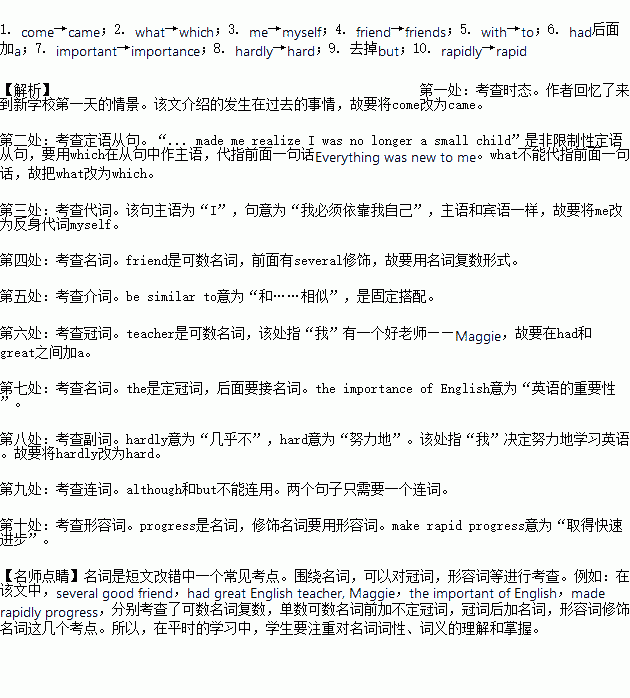题目内容
假定英语课上老师要求同桌之间交换修改短文,请你修改你同桌写的以下作文。文中共有10处语言错误,每句中最多有两处。每处错误仅涉及一个单词的增加、删除或修改。
增加:在缺词处加一个漏字符号(∧),并在其下面写出该加的词。
删除:把多余的词用斜线(\)划掉。
修改:在错的词下画一横线,并在该词下面写出修改后的词。
注意:1. 每处错误及其修改均仅限一词;
2. 只允许修改10处,多者(从第11处起)不计分。
I still remember the first day I come to this new school. Everything was new to me, what made me realize I was no longer a small child. I had to depend on me. Luckily, I made several good friend. Their interests were similar with mine. I had great English teacher, Maggie. She let me know the important of English. So I decided to learn English hardly. Although it was very difficult at first, but with the help of my teacher, I made rapidly progress. Just as the old saying goes, “Where there is a will, there is a way.”
练习册系列答案
相关题目


 about what construction to use, you begin to stammer, stop sounding natural. Your responses should become automatic to master the language, so instead of studying theory – take more practice! When you speak, you don't have time for considering what tense is appropriate, one hundred percent correct. 2. Grammar is important in writing, not in speaking.
about what construction to use, you begin to stammer, stop sounding natural. Your responses should become automatic to master the language, so instead of studying theory – take more practice! When you speak, you don't have time for considering what tense is appropriate, one hundred percent correct. 2. Grammar is important in writing, not in speaking.